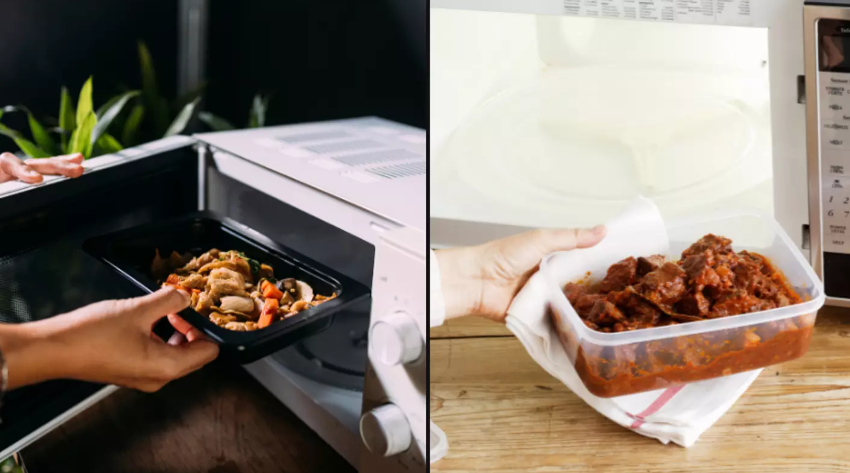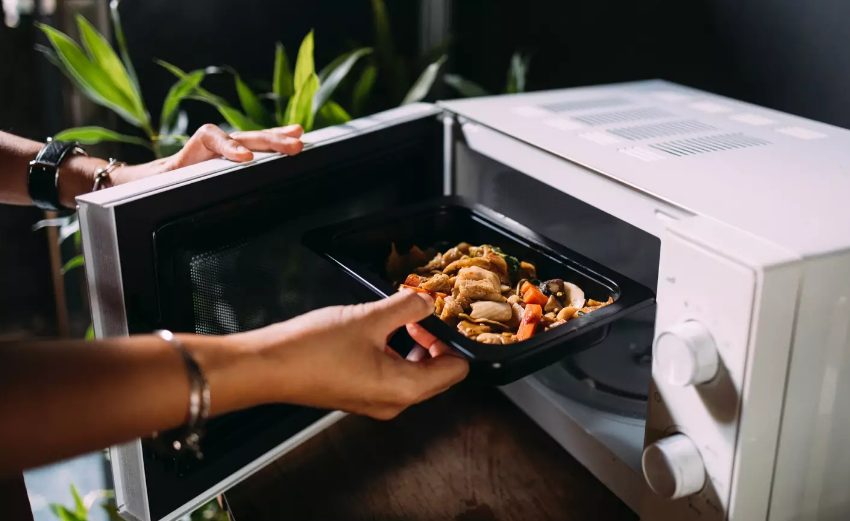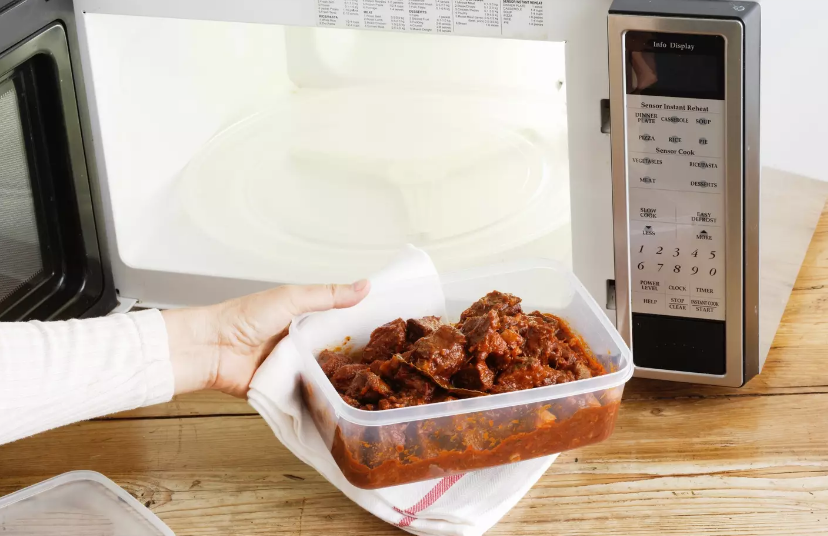Attention to Those Using Plastic Containers for Microwaving Food
Before you hit that "start" button on your microwave for a quick leftover fix, hold up! It turns out there's more to this convenience than meets the eye.
If you're one to reach for a plastic container to nuke your meal, here's a friendly heads-up from gastroenterologist Saurabh Sethi: it might be time to rethink your choice of cooking vessel to avoid potential health risks.
Now, I know what you're thinking. Microwaving is just a part of modern life, right? Well, don't worry too much. There's always a chance to make better choices.
Dr. Sethi recently shared a health tip on social media, emphasizing the importance of the container you use when microwaving your favorite dishes. In an Instagram video, he explained how microwaves work their magic by converting electricity into electromagnetic waves, which in turn heat up the molecules in your food through vibration and friction.
Sure, studies suggest that microwaving can help food retain its nutrients, often beating out other methods like frying. But here's the kicker: using plastic containers for this process? Dr. Sethi strongly advises against it.
"Never microwave a plastic container, use glass instead," he advises.
Why the warning? Well, many plastics, including those in your food containers, contain compounds like BPA (short for bisphenol A), which can leach into your food when heated.
BPA, a chemical used in plastics since the 1950s, doesn't play well with our bodies. It can mess with important hormones, potentially leading to issues like infertility, early puberty, cancer, and metabolic disorders. Not exactly the side dish you were looking for with your reheated lasagna, right?
What's more, concerns have been raised about BPA's impact on the brain and prostate gland of unborn babies and children. Research also links BPA exposure to increased blood pressure, type 2 diabetes, and heart problems.
So, as you zap your leftovers in that plastic container, you're essentially inviting BPA and other not-so-friendly chemicals to join your meal.
Pediatrics professor Dr. Sheela Sathyanarayana from the University of Washington echoes Dr. Sethi's concerns. She warns that heating your food in plastic can "certainly increase your exposure" to harmful chemicals.
"We don't recommend putting plastics in the microwave or dishwasher because it makes them degrade," she explains.
But it's not just BPA you need to watch out for. Even plastics labeled BPA-free might not be safe for microwaving. According to consumer champion Which?, plastics could still contain phthalates, another hormone-disrupting chemical that can find its way into your food during cooking.
Dr. Sathyanarayana offers a piece of advice: be mindful of how you prepare your leftovers. While it's challenging to eliminate all exposures in our modern world, it's about making informed choices to reduce overall risks.
So next time you're reaching for that plastic container, think twice. Your health might thank you for choosing glass instead.
%20(5).png)










